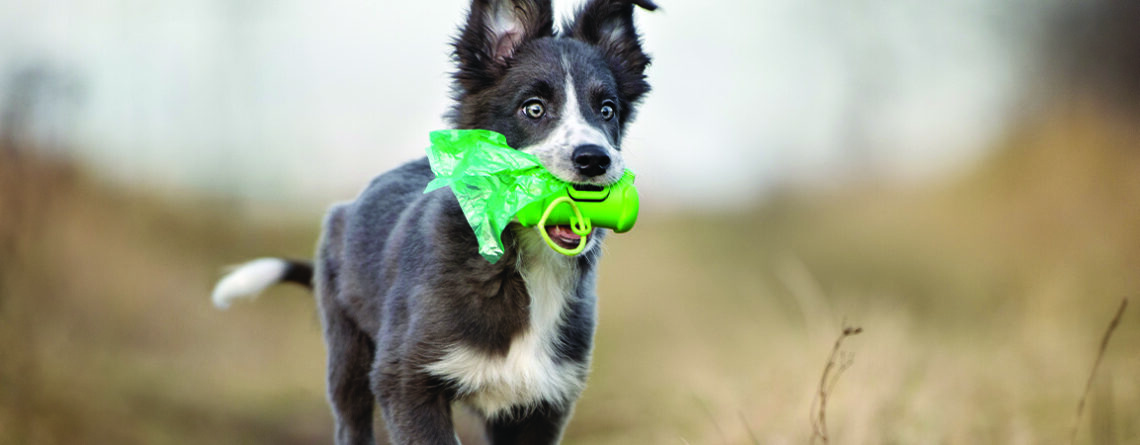Why is my dog’s poop soft? Causes & how to help
What does soft poop look like?
It is helpful to understand what constitutes a soft poop. Soft stool in general is defined as feces that are not fully formed, or that is soft in consistency and cannot be easily picked up. Soft stool—which can sometimes resemble a soft-serve ice cream in consistency—can progress to diarrhoea, which can be a serious issue.
In general, your dog’s stools should be tubular, dark brown, fairly firm and easy to pick up. If your dog’s poop is soft, you should establish when it is soft, such as if it’s:
- Consistently soft
- Solid then changes to soft
- Solid then changes to soft as the day progresss
- Inconsistently soft (different days/places/times)
It might be helpful to start to record in a diary all food, treats (and the quantities fed), plus any useful notes around your dog’s poop’s colour and consistency.

Why is my dog’s poop soft?
- Change of Diet
Making any changes to the diet, whether that’s to improve your dog’s nutrition or for health reasons, must be done properly in order to avoid any upset tummies. When you’ve been feeding your dog a specific brand of food, with it’s own individual ingredients and protein levels, their digestive system has adapted to that. As a result there are two things to consider if you have changed their diet.
Did you transition gradually to the new food? Transitioning to a new dog food needs to be with an adjustment period, so if you’ve suddenly changed your dog’s food, this may have thrown their tummies off! It is important to gradually add in a small part of the new food with their old food over a period of time, building up to 100% of their new food. This can be done over a couple of weeks for some dogs, whereas for others with sensitivities, it is better to do this more gradually.
Is it a lower quality of food or a specific ingredient causing issues? If you’ve dramatically changed the levels of protein, protein type, added or removed grains or specific ingredient, this may have flagged an intolerance or allergy. Carefully inspect and compare the ingredients lists between the two brands of dog food.

2. Stress
A stressful event like adopting a new dog, the arrival of a new family member, or moving home can cause tremendous amounts of stress on our dogs. Try to identify the cause of stress and establish a routine with them as soon as possible.
3. Allergies
A food allergy can occur when a dog’s immune system overreacts to one or more of the ingredients in their diet and produces antibodies to substances that it would typically tolerate. This can result in skin problems such as itchiness or tummy problems such as vomiting, diarrhoea or for some unfortunate pets, both.
The first step to helping your dog is to seek professional assistance from a vet, as it is the only sure-fire way to determine what is the root of the problem. If your vet suspects a food allergy, they may run a ‘food trial.’ This involves feeding a special, strict diet on their recommendation for a specified time period.
If your dog’s symptoms begin to ease during the trial, it may mean they were allergic to something in their food. Food trials and elimination diets can be time consuming and tricky, but ultimately they can help find what the issue is. It’s also worth starting to keep a diary of all their food and any changes in poop!
4. Eating the wrong foods
It can be hard to resist those puppy eyes looking up at you from the dinner table, and often they win over us with that one look. However, even if you’re feeding your dog ‘safe’ foods, our canine friends don’t typically tolerate cooked foods like us humans. This can result in their digestive system struggling and causing soft poo or diarrhoea. Avoid feeding fatty, greasy, salty scraps from the dinner plate.
How to treat your dog’s soft poop
If your dog has soft stools, the following might help:
- Adding a good daily probiotic lie Canigest Probiotic for Dogs. It helps maintain a healthy digestive system and it is particularly suitable for feeding to dogs to assist in the nutritional management of digestive tract upsets.
- Add supplements such as VetIQ Stool Firm Tablets, which are specially formulated with a unique blend of pectin and pumpkin which helps increase stool firmness.
- Ensure your dog gets plenty of hydration; Oralade Active Electrolyte Drinks for Dogs provides fast, effective, hydration for dogs when they need it the most. It’s tasty chicken flavour encourages them to drink more for longer, helping them maintain optimum hydration.
- Consider changing the food that your dog is eating. Speak with our nutrition advisers in-store today and we can help to find an alternative that might suit.
- If you have any concerns about your dog’s health it is important to take your dog to the vet. They can run diagnostics to determine if an underlying cause other than stress or diet—like a health issue—is causing the problem.

